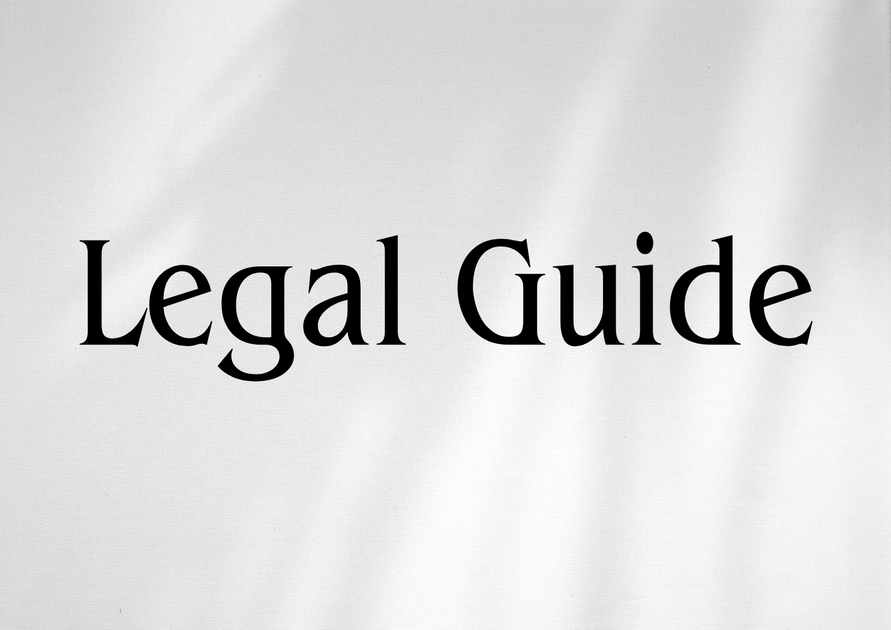Introduction: The Strategic Significance of Qatar’s Ministry of Commerce and Industry for UAE Businesses
The evolving Middle Eastern legal and business landscape requires entrepreneurs, executives, and legal practitioners in the UAE to remain vigilant about cross-border commercial dynamics. Among the most pivotal institutions shaping this environment is Qatar’s Ministry of Commerce and Industry (MoCI). As Qatar spearheads regulatory transformation and economic diversification—guided by its National Vision 2030 and bolstered by new decrees and regulatory mechanisms—the reach and influence of MoCI now extend well beyond Qatar’s borders, impacting regional trade, investment structuring, and strategic alliances. For UAE-based corporates and professionals, a nuanced understanding of the MoCI’s powers, recent legal reforms, and compliance expectations is not only advisable, it is essential. This article delves deeply into the regulatory framework, operational priorities, and risk considerations administered by Qatar’s MoCI, providing UAE businesses and legal advisors with actionable insights aligned with the latest 2025 regional legal updates and referencing proven federal decree precedents.
Table of Contents
- MoCI Overview and Foundational Mandate
- Legal Framework and Regulatory Instruments
- Key Functions and Governance Mechanisms
- Recent Regulatory Updates and 2025 Law Changes Affecting UAE Businesses
- Compliance Considerations and Legal Risk Management
- Comparative Analysis of Old and New Regulations
- Practical Scenarios: How UAE Companies Are Impacted
- Non-Compliance Penalties and Legal Enforcement
- Best Practice Guidance for UAE-Based Clients
- Conclusion: Future Trends and Strategic Recommendations
MoCI Overview and Foundational Mandate
Historical Development and Strategical Role
Qatar’s Ministry of Commerce and Industry stands at the crossroads of national economic strategy and international trade facilitation. Since its establishment under the Emiri Decree No. 11 of 2018—superseding earlier structures to consolidate commercial and industrial policy—the MoCI has aggressively pursued regulatory modernization, streamlined business services, and compliance monitoring. These moves echo the UAE’s own commercial reforms and demonstrate the region’s shared commitment to legal and economic alignment, especially within the GCC.
Strategic Relevance for UAE Entities
Cross-border commerce forms the lifeblood of Gulf economies. For UAE-based organizations operating, joint venturing, or investing in Qatar, or receiving Qatari investment, the MoCI’s standards, licensing regimes, and enforcement mechanisms exert direct influence on legal compliance, profit repatriation, and dispute resolution. An expert understanding of MoCI frameworks will mitigate roadblocks and maximize regional synergy.
Legal Framework and Regulatory Instruments
Key Laws and Regulatory Decrees
The Ministry’s regulatory authority draws from several foundational legal texts, primary among these:
- Qatar Commercial Companies Law (Law No. 11 of 2015, amended by Law No. 8 of 2021): Defines corporate formation, governance, foreign ownership restrictions, and compliance duties.
- Investment Law (Law No. 1 of 2019): Enables 100% foreign ownership in key sectors, subject to MoCI licensing and oversight.
- Ministerial Resolutions and Circulars: Regularly update sectoral licensing, anti-monopoly regimes, electronic commerce rules, and dispute resolution procedures.
These are supplemented by Cabinet Resolutions and periodic ministerial guidance, outlining compliance frameworks for anti-money laundering (AML), consumer protection, and intellectual property.
Interaction with UAE Legal Standards
While direct legal transposition does not apply, strong parallels exist with UAE’s Federal Decree-Law No. 2 of 2015 (Commercial Companies Law, as amended), Cabinet Resolution No. 58 of 2020 (Ultimate Beneficial Ownership), and the regulatory structures under the UAE Ministry of Economy and Ministry of Justice. UAE businesses can leverage this parallelism for smoother market entry and reduced legal friction when engaging with Qatar.
Key Functions and Governance Mechanisms
Core Regulatory Functions
- Business Licensing and Registration: Governing commercial licenses, industrial permits, foreign branch approvals, and e-commerce credentials.
- Company Incorporation Oversight: Vetting of corporate constitutions, shareholder agreements, and public company offerings.
- Market Surveillance and Consumer Protection: Administering fair competition and anti-fraud provisions, parallel to UAE’s Federal Law No. 15 of 2020 on Consumer Protection.
- Intellectual Property (IP) Protection: Enforcing IP rights, patent registrations, and related dispute adjudication.
- Foreign Investment Facilitation: Approving 100% foreign ownership across several sectors since 2019, subject to strategic restrictions.
- Industrial Sector Regulation: Certification, compliance, and export control for manufacturing and industrial projects.
Oversight and Enforcement Mechanisms
The MoCI wields broad investigatory and enforcement powers—ranging from random inspections to administrative sanctions and business suspension. The Ministry routinely coordinates with Qatar’s Public Prosecution and the judiciary, echoing the UAE’s own model of multi-agency compliance enforcement.
Recent Regulatory Updates and 2025 Law Changes Affecting UAE Businesses
Major Legal Developments Relevant to the UAE Business Community
- Amended Foreign Investment Rules (2021–2024): Expanded sectoral eligibility for 100% foreign ownership, reduced capital requirements, and streamlined approvals—mirroring UAE’s Cabinet Resolution No. 16 of 2020.
- Ultimate Beneficial Ownership (UBO) Disclosure: New mandates for disclosure of UBO information, strengthening AML/CFT compliance (see MoCI Circular No. 2/2023), similar to UAE Cabinet Resolution No. 58 of 2020.
- Commercial Registry Reform (2023): Digitalization of company records and real-time registry access for enhanced business transparency.
- E-Commerce Licensing & Consumer Rights Updates (2022–2025): Compulsory registration for online businesses and enhanced consumer rights enforcement, anticipating further alignment with the UAE’s digital commerce initiatives.
These reforms demand close legal monitoring and agile compliance systems, particularly as GCC regulatory convergence accelerates toward 2025.
Compliance Considerations and Legal Risk Management
Key Risks for UAE Organizations
- Corporate Registration Errors: Inaccurate UBO data, outdated memoranda, or incomplete MoCI filings can invalidate licenses and expose entities to suspension or fines.
- Failure to Update Shareholding or Directorships: Omission or delay in reporting corporate changes invites regulatory censure and potential criminal exposure.
- Incomplete Compliance with E-Commerce Mandates: Operating without valid MoCI permission in online spheres can result in injunctions, platform shutdowns, and fiscal penalties.
- AML/CFT Gaps: Insufficient anti-money laundering controls risk both financial penalties and reputational harm, particularly for entities with cross-border remittances.
Compliance Strategies for UAE Businesses
- Regular Legal Audits: Annual or bi-annual reviews of all corporate registrations, UBO records, and licensure paths.
- Monitoring Regulatory Changes: Appoint compliance liaisons to track MoCI circulars and regulatory guidance—mirroring standards under UAE Ministry of Human Resources and Emiratisation.
- Engaging Local Counsel: Proactively retain Qatari legal representation to interpret evolving MoCI stipulations and manage official filings.
- Comparative Law Reviews: Periodically compare MoCI requirements with those from the UAE Ministry of Economy and Ministry of Justice to ensure regional harmonization of compliance protocols.
Comparative Analysis of Old and New Regulations
The following table highlights key differences and convergences between legacy MoCI regulations and the most recent reforms, alongside parallels in the UAE legal regime. This comparative perspective enables compliance officers and in-house counsel to identify priority action areas.
| Area | Prior MoCI Regulation | Recent MoCI Reform (2021–2025) | Relevant UAE Law or Decree |
|---|---|---|---|
| Foreign Ownership | 49% foreign cap in most sectors | 100% permitted in priority sectors, expedited licensing process | Cabinet Resolution No. 16 of 2020, Federal Decree-Law No. 26 of 2020 |
| Company Registration | Manual, paper-based process | Online portal and digital documentation, real-time registry access | UAE Ministry of Economy Digital Licensing Platform |
| Ultimate Beneficial Ownership | Limited or no UBO tracking requirements | Mandatory UBO disclosure, heavy penalties for non-reporting | Cabinet Resolution No. 58 of 2020 (UAE) |
| Consumer Protection | Basic anti-fraud rules, limited digital scope | Expanded digital and online commerce rights, dispute mediation channels | Federal Law No. 15 of 2020 (UAE) |
| Enforcement | Irregular inspections, limited penalty scope | Heightened inspections, escalated sanctions, public blacklisting | UAE Ministry of Justice Penalty Matrices |
Visual Suggestion: An infographic charting regulatory convergence between MoCI and comparable UAE frameworks (highlighting UBO, e-commerce, and foreign investment rules).
Practical Scenarios: How UAE Companies Are Impacted
Case Example 1: UAE Distributor Expanding to Qatar
A Dubai-based electronics distributor intends to establish a subsidiary in Qatar. Under the latest MoCI rules, the company enjoys full ownership, provided it registers UBO data and aligns its corporate structure via the MoCI online portal. Failure to do so could result in registration denial or operational delays—despite the entity’s UAE compliance history.
Case Example 2: E-Commerce Startup
An Abu Dhabi fintech launches a cross-border payment platform targeting both UAE and Qatari users. The start-up must now secure MoCI e-commerce licensure, appoint a local service agent, and demonstrate robust digital consumer protection policies. Omission can prompt not only MoCI intervention, but mirrored scrutiny under UAE Federal Law No. 15 of 2020.
Case Example 3: GCC Joint Venture
A UAE-Qatari real estate consortium merges operations. New MoCI standards demand complete disclosure of all beneficial owners and digital submission of all shareholder agreements. This harmonizes with recent UAE mandates, streamlining due diligence for both markets, but failure in either jurisdiction invites both regulatory and fiscal repercussions.
Compliance Checklist Table
| Compliance Area | MoCI Obligation | UAE Equivalent | Recommended Action |
|---|---|---|---|
| UBO Disclosure | Filing of accurate beneficial owner details | Cabinet Resolution No. 58/2020 | Ensure documentary alignment and regular updates |
| E-commerce Licensing | MoCI registration for online operations | Ministry of Economy (UAE) E-commerce license | Parallel licensing in both markets, robust policy documentation |
| Corporate Changes | Prompt notification to MoCI | UAE Commercial Companies Law (2015, amendments) | Real-time digital filing, legal review |
Non-Compliance Penalties and Legal Enforcement
Risk of Non-Compliance
- Financial Penalties: Substantial fines for incorrect registration, delay in UBO disclosure, or unlicensed operations (up to QAR 500,000 per offense).
- Business Suspension: Temporary or permanent revocation of commercial licenses and digital platform bans.
- Criminal/Civil Action: Prosecution for willful misrepresentation, with potential asset freezes, especially for compliance failures with AML/CFT mandates.
- Reputational Harm: Publicly accessible registry blacklists deter future partnerships and undermine regional credibility.
Visual Suggestion: Include a penalty comparison chart illustrating MoCI fines against those under UAE federal law for common compliance lapses.
Best Practice Guidance for UAE-Based Clients
Actionable Recommendations
- Appoint a dedicated compliance officer (preferably dual-qualified in Qatar and UAE law).
- Schedule biannual policy reviews and licensing checks—aligned with updates from both MoCI and UAE Ministry of Human Resources and Emiratisation.
- Adopt digital document management to streamline registry compliance and cross-border due diligence.
- Engage in industry roundtables and government consultations to stay ahead of emergent regulatory change, leveraging trade association resources.
Table: Legal Compliance Roadmap (2025 Onwards)
| Compliance Stage | MoCI Requirement | Timeline/Frequency | UAE Best Practice Alignment |
|---|---|---|---|
| Initial Registration | Digital filing, UBO submission | At incorporation/entry | Ministry of Economy (UAE) procedures |
| Annual Renewal | License update, ongoing UBO review | Yearly | Federal Decree-Law No. 2/2015 compliance |
| Incident Reporting | Immediate notification of directorship/shareholding changes | As required | Similar under UAE Companies Law |
| Regulatory Query | Timely response to MoCI investigations | Ongoing | UAE Ministry of Justice response protocols |
Conclusion: Future Trends and Strategic Recommendations
The operational and legal influence of Qatar’s Ministry of Commerce and Industry is growing, with increasingly granular regulations and a pronounced focus on digital transparency, cross-border compliance, and robust enforcement. For UAE businesses—especially as the legal landscape is being reshaped in 2025 by new federal decrees and harmonized rules—the MoCI’s requirements are not merely a technicality, but a core business concern. Embracing best practices, maintaining diligent legal oversight, and anticipating forthcoming reforms remain the most effective strategies for risk mitigation and sustainable, compliant regional expansion. By leveraging expert legal advisory input and aligning internal protocols to both MoCI and UAE high standards, corporate leaders and legal practitioners can future-proof their GCC operations for a highly regulated era.
For bespoke advisory on legal compliance or operational risk in relation to the MoCI or updates to UAE law, consult with a specialist UAE legal consultancy to ensure robust risk management and ongoing business success.




